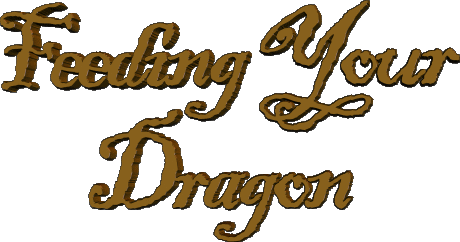
The dragon [which is perfectly fearless of beasts], when it hears the noise of the wings of an eagle, immediately conceals itself in hiding-places.
Ethiopia generates dragons reaching thirty paces long; they have no proper name, but they merely call them slayers of elephants, and they attain a great age. So far do the Ethiopian accounts narrate. The Phrygian history also states that dragons are born which reach ten paces in length; which daily in midsummer, at the hour when the forum is full of men in assembly, are wont to proceed from their caverns, and [near the river Rhyndacus], with part of the body on the ground, and the rest erect, with the neck gently stretched out, and gaping mouth, attract birds, either by their inspiration, or by some fascination, and that those which are drawn down by the inhalation of their breath glide down into their stomach—[and that they continue this until sunset,] but that after that, concealing themselves, they lay in ambush for the herds returning from the pasture to the stable, and inflict much injury, often killing the herdsmen and gorging themselves with food.
When dragons are about to eat fruit they suck the juice of the wild chicory, because this affords them a sovereign remedy against inflation. When they purpose lying in wait for a man or a beast, they eat deadly roots and herbs; a thing not unknown to Homer, for he makes mention of the dragon, who, lingering and twisting himself in front of his den, devoured noxious herbs.